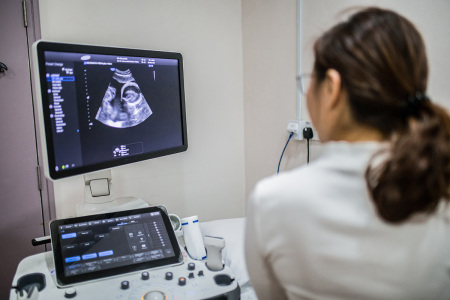Kansas Supreme Court strikes down dismemberment abortion ban, abortion clinic regulations

The Kansas Supreme Court has struck down a state law prohibiting second-trimester dismemberment abortion procedures and a series of regulations put on abortion clinics.
In a pair of decisions released last Friday, Kansas' highest court struck down multiple laws that restricted the dilation and evacuation abortions and added safety requirements for abortion clinics.
In Hodes & Nauser, MDs v. Kobach, the state high court ruled that a state law passed in 2015, known as Senate Bill 95, that banned dilation and evacuation abortions, also called dismemberment abortions, was unconstitutional.
Justice Eric Rosen authored the majority opinion, writing that "section 1 of the Kansas Constitution Bill of Rights protects a fundamental right to personal autonomy, which includes a pregnant person's right to terminate a pregnancy."
"The State has not carried its burden to establish S.B. 95 is narrowly tailored to furthering any compelling interest. We affirm the district court's grant of summary judgment for the Provider," wrote Rosen.
Rosen disagreed with the state's arguments that the law was meant to protect life, noting that other second-trimester abortion procedures would still be allowed and that "the State's interest, as stated, is so generic as to mean anything the State wants it to mean when it needs to justify anything it would want to do."
"For example, this phrasing could justify government force to compel someone to donate a body organ if doing so would save a life," Rosen continued.
Justice Caleb Stegall authored a dissenting opinion, arguing that "the majority cannot bring itself to acknowledge the government's compelling interest in unborn human life."
"Yes, the majority maneuvers around this problem by skipping it in favor of its narrow tailoring analysis. But the truth is, the majority doesn't answer this question because it is so decidedly troublesome to the majority's new section 1 regime," Stegall wrote.
In Hodes & Nauser, MDs v. Stanek, the Kansas Supreme Court ruled against a series of regulations on abortion clinics that were passed in 2011 and 2015, claiming that they violated the right to an abortion.
These included requiring a physician to be present when a pregnant woman takes the chemical abortion drug mifepristone and that only physicians — not nurses or midwives — can perform surgical abortions.
Justice Melissa Taylor Standridge authored the majority opinion, concluding that "the State failed to meet its evidentiary burden to show the Challenged Laws further its identified compelling interest in protecting maternal health and regulating the medical profession as it relates to maternal health."
"But as we just discussed, any degree of infringement — however slight — on a fundamental right protected under section 1 triggers strict scrutiny," Standridge added.
Stegall also authored a dissenting opinion, arguing that the decision effectively paves the way for any government regulation interfering with personal choice to be struck down if legally challenged.
"In fact, dozens of other laws regulate a person's right to choose what happens to their body and must — according to the majority's own holding — be subjected to strict scrutiny," wrote Stegall.
"A massive swath of government action is now subject to the most rigorous and exacting standard of constitutionality — strict scrutiny. And no legal scholar or judge anywhere has ever even tried to suggest that all or even most of the plainly legitimate ends of government action could possibly survive such a test."
Kansans for Life Communications Director Danielle Underwood denounced the rulings in a statement, arguing that these decisions were driven by partisan politics.
"Adding insult to injury, extremely liberal judges of the Kansas Supreme Court have now overturned basic health and safety standards for abortion facilities when one of the state's largest abortion franchises recently operated for an unknown period of time with no medical oversight," stated Underwood.
"It hurts to say, 'we told you so,' to the many Kansans who were misled by the abortion industry's assurances that it would still be 'heavily regulated' in our state if voters rejected the 2022 amendment."
Nancy Northup, president and CEO of the Center for Reproductive Rights, whose organization helped to represent the plaintiffs in the litigation, celebrated the decisions, declaring that "the Kansas Supreme Court has decisively reaffirmed that the state constitution protects abortion as a fundamental right."
"This is an immense victory for the health, safety, and dignity of people in Kansas and the entire Midwestern region, where millions have been cut off from abortion access," said Northup in a statement. "We will continue our fight to ensure Kansans can access the essential healthcare they need in their home state."
In August 2022, Kansas voters rejected a pro-life amendment to the state constitution, which would have allowed state lawmakers to impose stronger restrictions on abortion or possibly ban the procedure.





















